SUNDAY CINEMATHEQUE AT THE CHAZEN: RAINER WERNER FASSBINDER
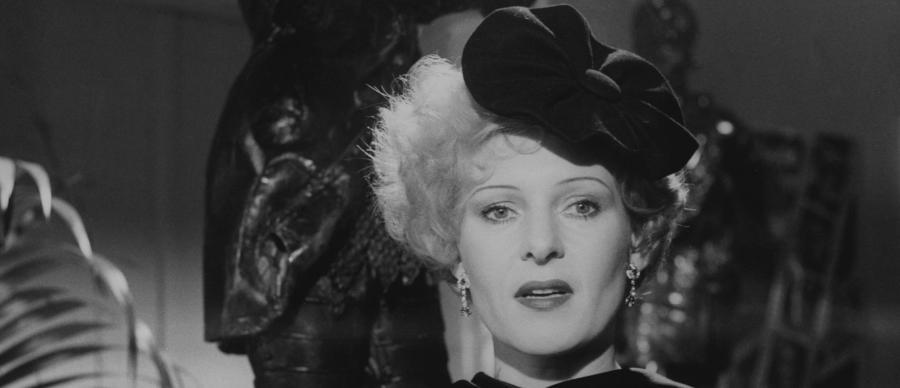
VERONIKA VOSS
Our Sunday afternoon series at the Chazen Museum of Art this fall will provide an opportunity to view 15 features by Rainer Werner Fassbinder, a founder of New German Cinema and one of the most controversial filmmakers of his generation. Fassbinder’s prolific oeuvre includes examples of virtually every genre, and while he drew inspiration from the melodramas of Douglas Sirk and the French Nouvelle Vague, Fassbinder’s own movies have influenced a whole generation of filmmakers including Todd Haynes, Quentin Tarantino and Todd Solondz. All screened on 35mm prints, the selections in this series conclude with Fassbinder’s trilogy of post-War German life (The Marriage of Maria Braun, Lola and Veronika Voss). The series will provide ample evidence of Fassbinder’s genius, reminding us of the miracle of his short career as well as the tragedy of his early demise, in 1982, at the age of 37.
- Sun., Sep. 2 | 2:00 PMChazen
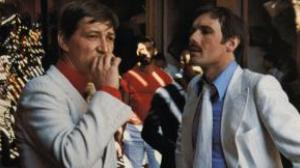
Fassbinder himself stars as an unemployed gay man who suddenly becomes rich—if no less vulnerable to bourgeois exploitation—after winning the national lottery. Aided by Michael Ballhaus’s evocative cinematography and Leonard Cohen’s melancholy tunes, this dazzling mixture of humanistic tragedy and etched-in-acid social criticism firmly established RFW’s international reputation.
- Sun., Sep. 9 | 2:00 PMChazen
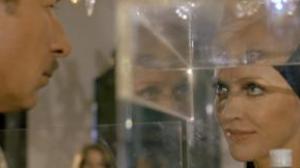
A husband and wife unwittingly take their respective lovers to the couple’s shared country house on the same weekend. After an initial period of sophisticated acceptance, the pair’s disabled daughter and her inscrutable nanny arrive, and tensions quickly increase. This brief, intense drama stands as one of Fassbinder’s most trenchant critiques of human relationships and the modern family.
- Sun., Sep. 16 | 2:00 PMChazen
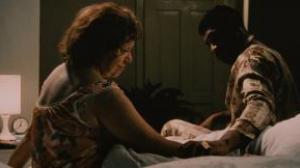
In her supreme performance for Fassbinder, Mira plays a lonely, middle-aged widow who begins an affair with an Arab immigrant laborer (Salem). Their love, however, is no match for the shock and outrage of their friends and families. While explicitly exploring contemporary German society, Fassbinder also pays homage to Douglas Sirk’s All That Heaven Allows (screening 9/15).
- Sun., Sep. 23 | 2:00 PMChazen
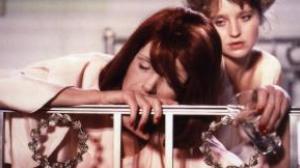
Successful fashion designer Petra von Kant (Carstensen) sadistically dominates her live-in personal assistant within the confines of their claustrophobic apartment. When Petra falls in love with a beautiful younger woman, it exposes her own considerable vulnerabilities. This ahead-of-its-time black comedy is a mediation on the relationship between power and desire among women.
- Sun., Sep. 30 | 2:00 PMChazen
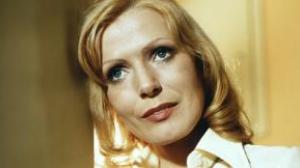
In one of Fassbinder’s most potent depictions of middle-class German angst, housewife Margot (Carstensen) experiences a number of physical and nervous ailments after the birth of her second child. Facing indifference from her husband and friends, Margot turns to alcohol and drugs to ease her pain.
- Sun., Oct. 7 | 2:00 PMChazen
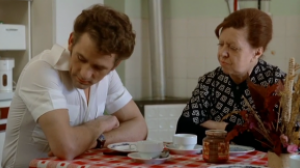
In another memorable lead, Fassbinder mainstay Mira is the title character, a hausfrau who loses her husband in a violent incident and eventually finds herself exploited by both left- and right-wing groups, as well as the media and her own family. One of the most underrated films of the New German Cinema, the politically-charged Mother Küsters is more relevant now than ever.
- Sun., Oct. 14 | 2:00 PMChazen
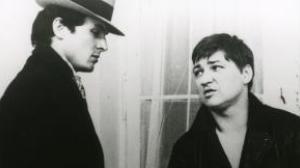
In his first feature film, Fassbinder stars as the lowly pimp Franz, caught in a love triangle with his prostitute girlfriend Joanna (Schygulla) and Bruno (Lommel), a gangster out to convince Franz to join his syndicate. Inspired by Hollywood tropes and low-budget French New Wave storytelling techniques, Fassbinder’s debut was one of the first major works of the New German Cinema.
- Sun., Oct. 21 | 2:00 PMChazen
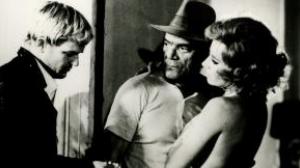
An internationally renowned actor (Alphaville’s Constantine) clashes with an abusive director (Castel) during the making of an art movie. Working without a script and a runaway budget, the rest of the actors and crew cruelly descend on each other. Inspired by the dysfunctional set of one of his earlier productions, Fassbinder made this acerbic gem, his own contribution to the canon of movies about moviemaking.
- Sun., Oct. 28 | 2:00 PMChazen
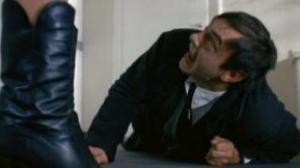
Out of money and out of ideas, an anarchist poet (Raab) juggles several mistresses while trying to raise money from a wealthy eccentric who will pay to be threatened by a gun. He also must contend with his wife and a mentally disabled, insect-obsessed brother. An often bordering-on-obscene dark comedy, Satan’s Brew contains “something to offend pretty much everyone...Ironically, it’s also one of the few [Fassbinder] films to have a happy ending” (Ben Sachs, Cine-File Chicago).
- Sun., Nov. 4 | 2:00 PMChazen
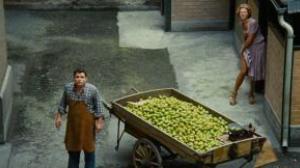
After a series of quickly made, low-budget movies, Fassbinder began a new phase of his career with this meticulously told story of a fruit vendor and former policeman who struggles to provide for his family. Featuring a complex script and a more sophisticated use of the camera, The Merchant was also Fassbinder’s first movie after rediscovering the Hollywood cinema of German emigré Douglas Sirk.
- Sun., Nov. 11 | 2:00 PMChazen
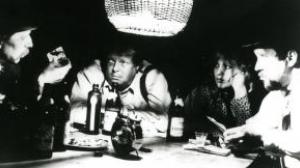
Ricky (Scheydt) is an American soldier with German roots who, having just served in Vietnam, returns to his hometown of Munich. In Germany, Ricky becomes a contract killer for some renegade cops when he is asked to eliminate some problem criminals. This early feature from Fassbinder is an homage to Hollywood gangster movies and one of the director’s most overtly political statements.
- Sun., Nov. 18 | 2:00 PMChazen
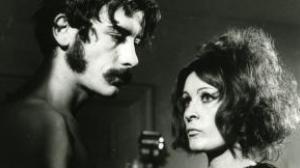
In this sequel to Love is Colder Than Death, Franz (now played by Baer) is released from prison and starts planning a supermarket robbery. He also rekindles his relationship with old flame Johanna (Schygulla) and lights several new ones. “Quintessential Fassbinder...the work of a very young man who has just discovered the secret pleasures of angst” (Vincent Canby, The New York Times).
- Sun., Dec. 2 | 2:00 PMChazen

The German Economic Miracle is brilliantly satirized in one of Fassbinder’s most popular films, an epic melodrama of a woman’s climb to the top in a traumatized, post-War culture. Giving Joan Crawford and Bette Davis a run for their money, the radiant Schygulla became an international superstar as the resourceful and determined Maria.
- Sun., Dec. 9 | 2:00 PMChazen
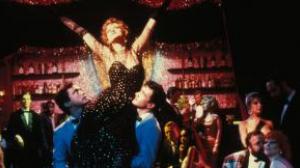
Riffing on von Sternberg’s The Blue Angel, Fassbinder tells of a cabaret singer/prostitute who, in 1957, uses her skills as a temptress to gain money, property and power. The second of Fassbinder’s “BRD trilogy” about postwar German life Lola is “a bitter, brisk, sometimes abruptly moving satire about the West German economic 'miracle' of the 50's” (Vincent Canby, The New York Times).
- Sun., Dec. 16 | 2:00 PMChazen
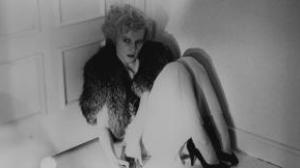
Shot in ghostly black and white, this dark homage to Sunset Blvd. follows a drug-addicted Nazi-era star attempting a comeback in the mid-1950s. Fassbinder’s penultimate film is an eerie, ironic account of self-delusion and exploitation, one that also stands as a sobering prophecy of the director’s demise shortly after its release.
